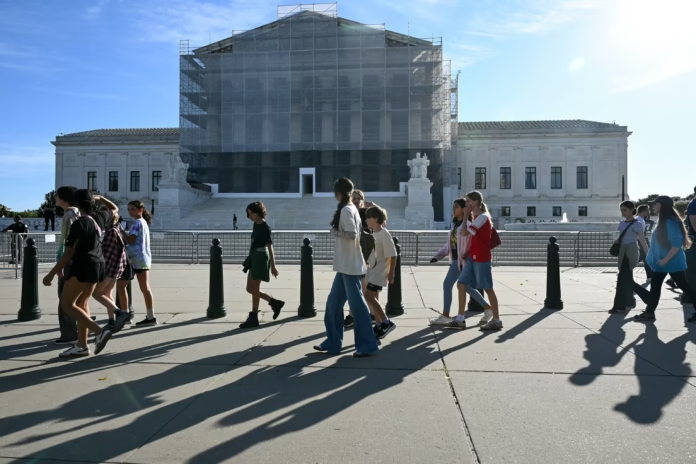The conversion therapy case has drawn national attention as the Supreme Court weighs Colorado’s ban on therapy for minors addressing sexual orientation or gender identity. The case raises significant First Amendment questions and carries political and social implications.
Licensed counselor Kaley Chiles argues that the law violates her free speech and religious rights. She contends that it restricts private conversations between therapists and their clients. About two dozen states and Washington, D.C., have similar laws regulating so-called conversion therapy.
Colorado defends the law, citing widespread research that efforts to change sexual orientation or gender identity are unsafe and ineffective. State officials say the legislation protects minors from emotional and physical harm. During oral arguments, the Supreme Court’s six conservative justices appeared sympathetic to Chiles’ position.
Several justices questioned whether the law treats speech differently depending on its viewpoint. Justice Samuel Alito suggested the regulation could constitute viewpoint discrimination. Justice Amy Coney Barrett asked if states can favor one set of medical opinions over another. Meanwhile, Justices Sonia Sotomayor and Ketanji Brown Jackson raised concerns about potential harm to minors.
Chiles’ lawyers describe her as a practicing Christian who offers faith-informed counseling to help clients live consistently with their beliefs. They emphasize that she does not attempt to “cure” or alter clients’ sexual orientation. Supporters, including the Trump Justice Department, argue that states cannot manipulate private conversations between licensed professionals and clients.
Colorado Solicitor General Shannon Stevenson countered that the law protects the best practices in mental health care. She cited research from medical associations showing conversion therapy can lead to depression, anxiety, and suicidal thoughts. Stevenson maintained that regulation of therapy is a professional standard, not censorship.
Public demonstrations have reflected the controversy, with supporters of Colorado’s law gathering outside the court. Chiles’ supporters canceled a rally due to safety concerns. The case has also highlighted broader debates on free speech, religious liberty, and the limits of professional regulation.
Observers note that the justices, particularly Chief Justice John Roberts and Justice Brett Kavanaugh, could play a decisive role. They will determine whether professional speech by therapists can be restricted similarly to medical practices. A ruling is expected by early summer 2026 and may influence future LGBTQ+ and religious liberty cases.
The conversion therapy case underscores tensions between state regulation, personal belief, and constitutional rights. How the court rules could affect the legal boundaries for counselors and the protection of minors nationwide.
For more political updates, visit DC Brief.


